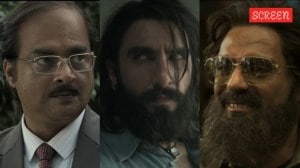
Helmed by ace filmmaker Joshiy and penned by gifted writer AK Lohithadas, Mahayanam (1989) marked Rajan’s debut and sole venture as a film producer. Despite featuring Mammootty in the lead role, the movie, which has since achieved cult status in the Malayali psyche, did not fare well at the box office, leading Rajan to substantial financial debts.
In a manner reminiscent of a scene from an inspirational movie, more than three decades later, Rajan’s sons, actor-writer Rony David Raj and cinematographer-director Roby Varghese Raj, have made history by delivering a blockbuster to Malayalam cinema, Kannur Squad, once again featuring the incomparable Mammootty in the lead role.
 Actors Mammootty, Rony David Raj, Azees Nedumangad and Shabareesh Varma in Kannur Squad. (Image: Mammootty Kampany/Instagram)
Actors Mammootty, Rony David Raj, Azees Nedumangad and Shabareesh Varma in Kannur Squad. (Image: Mammootty Kampany/Instagram)
The Mahayanam debacle
Despite the significant hardships caused by Mahayanam, CT Rajan’s eldest son Rony David Raj, who played a pivotal role in Kannur Squad and co-authored its script, holds a deep affection for the 1989 film. Rony says he has viewed it countless times and cherishes it.
“Unlike many aggressive and cunning producers, my father was sincere, soft-spoken, and an introvert. For example, some producers only provide Rs 4 or 5 when asked for Rs 10, and such tactics are considered standard business practice. However, my father didn’t fit that mould. He rarely visited film shooting locations, preferring to offer the necessary funding without delving into the details. My father later even mentioned to me that he could have managed the financial aspects better had I been older at the time. Unfortunately, that wasn’t the case. Mahayanam’s production occurred in multiple schedules, and one of my father’s notable shortcomings was his tendency to act impulsively. If someone needed Rs 10 lakh, even if he didn’t have that much money in hand, he would still find a way to arrange it,” Rony tells The Indian Express.
 Actor-writer Rony David Raj with Mammootty during an intense action sequence in Kannur Squad. (Image: Mammootty Kampany/Instagram)
Actor-writer Rony David Raj with Mammootty during an intense action sequence in Kannur Squad. (Image: Mammootty Kampany/Instagram)
The film not only resulted in the loss of Rajan’s house that was under construction but also the one they were currently living in. Both properties had to be sold, and the family had to relocate to a different place. “We grew up seeing our mother in a constant state of sadness. Nevertheless, during those moments, I always reassured her not to be concerned. In the end, it was her prayers that ultimately played a favourable role for us.”
Story continues below this ad
“The appreciation we’ve received from various quarters for Kannur Squad is because it’s a family’s success. Even if I were to win an Oscar in the future, it wouldn’t provide me with the same level of fulfilment as experiencing the first-day-first-show of Kannur Squad did,” he adds.
Theeran Adhigaaram Ondru and Kannur Squad
Opening up about Kannur Squad, Rony reveals that he was confident, since at least a week before its premiere, that the film would be a success.
“Theeran Adhigaaram Ondru stands as one of my all-time favourite films. It is very genuine and well-researched. Nonetheless, the movie primarily revolves around the character DSP Theeran, making it a one-man show. Typically, a similar investigative team would often involve a CI or a DSP-level officer. However, we deliberately excluded this in our storyline because it would divert attention from the protagonist. Hence, we chose to portray the team as consisting solely of an ASI and three constables,” he adds.
 Cinematographer-director Roby Varghese Raj’s Mammootty-starrer Kannur Squad grossed a remarkable Rs 100+ crore globally before winding up its theatrical run. (Images: Mammootty Kampany/Instagram)
Cinematographer-director Roby Varghese Raj’s Mammootty-starrer Kannur Squad grossed a remarkable Rs 100+ crore globally before winding up its theatrical run. (Images: Mammootty Kampany/Instagram)
In contrast to the typical police dramas, Kannur Squad is a procedural that unfolds at a measured tempo. Though screenwriters Rony and Muhammed Shafi could have chosen a ‘safer’ subject like a mass masala movie for their debut, the duo’s decision to choose a theme that would endure in people’s hearts long after the theatre curtains closed is indeed intriguing.
Story continues below this ad
“I am a big fan of classic movies. Ben Affleck’s Argo serves as a sort of reference point for me. At the same time, I also like the Die Hard films. Although we haven’t completely adopted the style of Die Hard, there were worries about certain elements leaning towards being excessively massy. Shafi is a devoted admirer of Mammukka (Mammootty). So, whenever his inner fan overpowered his role as a writer, I advised him to curb his instincts. While my forte lies in crafting dialogues, he excels in the overall structure. Even with regard to dialogues, Roby and Shafi would alert me if anything seemed to be leaning too much towards mass appeal. So, we have prioritised keeping the characters rooted, creating dialogues that accurately capture the essence of the moment and resonate with the audience. Many real-life cops conveyed their appreciation for the movie, particularly praising the ending.”
“In spite of repeatedly emphasising before the release that, despite my admiration for screenwriter Renji Panicker, our film would not incorporate highly sharp-edged dialogues like the ones the latter used to craft, we did find inspiration from his works while depicting the back stories of certain characters, like SP Cholan,” he adds.
Road to Kannur Squad and its nuances
Highlighting specific intricate aspects of Kannur Squad, Rony David Raj remembers that the discussions among IPS officers on-screen contained a considerable amount of English. “The deliberate choice was made to illustrate to the viewers the distinction between the high-ranking officers and those of lower ranks. The former are civil servants who likely studied with candidates from different parts of the country, hence making English an integral part of their vocabulary.”
 Actors Mammootty, Rony David Raj and Azees Nedumangad in Kannur Squad. (Image: Mammootty Kampany/Instagram)
Actors Mammootty, Rony David Raj and Azees Nedumangad in Kannur Squad. (Image: Mammootty Kampany/Instagram)
Recalling the experience of presenting the second draft of the script to an actor in the industry, whom he did not wish to name, Rony recollects that the star declined the project, citing the latter half as unconvincing. “Shafi and I then approached Mathukutty Xavier, the director of Helen, and the movie’s co-writer, Alfred Kurian. We narrated the story to them, and although they liked it, they also shared the same opinion about the second half, noting that there weren’t enough obstacles. So, we began brainstorming crises for the characters and packed that section as tightly as possible.”
Story continues below this ad
Rony also mentions that the scenes filmed in Pune, particularly the ones atop the dam and at the windmill site, proved unexpectedly challenging due to the intense heat.
Rony’s favourite moments in his first-ever screenplay
Discussing his favourite moments in the film, Rony highlights the confrontation between ASI George Martin and SP Cholan as one of his most cherished scenes, confident that it would receive significant applause. “The second one was the clash between Range IG Tony Maliyil and Cholan, which I thoroughly enjoyed watching in the theatre. However, the moment that truly uplifted the spirits of audiences, including myself, was when the jeep returned to the spot.”
When queried about his top Malayalam police films, Rony reveals his deep admiration for Shaji Kailas’s Commissioner (1994), featuring Suresh Gopi in the lead and K Madhu’s Jagratha: CBI Diary – Part 2, a sequel to the 1988 hit Oru CBI Diary Kurippu, and Sibi Malayil’s August 1, both showcasing Mammootty in the lead role.
 Roby Varghese Raj’s Kannur Squad is based on a real-life police unit bearing the same name, originally formed by former Kannur SP S Sreejith to expedite case resolutions. (Image: Mammootty Kampany/Instagram)
Roby Varghese Raj’s Kannur Squad is based on a real-life police unit bearing the same name, originally formed by former Kannur SP S Sreejith to expedite case resolutions. (Image: Mammootty Kampany/Instagram)
A sequel to Kannur Squad on the cards?
On the possibility of a sequel for Kannur Squad, Rony mentions that they have yet to make a decision. “I still don’t know… We haven’t given it proper thought. If we were to create one, it would have to surpass or at least match the quality of the first. Otherwise, it wouldn’t be justifiable.”
Story continues below this ad
When asked about the inception of his dream to enter the film industry and his pursuit of it, Rony reflects on his triumph in the Kerala University Drama Festival during his student years. “Since my pre-degree days, I’ve actively engaged in extracurricular activities. In 1996, while studying at MG College, Trivandrum, a university-level trophy I earned was exceptionally rare for our institution from such competitions.”
“But my father insisted that I pursue my education and obtain a medical degree. His past financial struggles led him to give me such advice. Even while pursuing my MBBS degree, I remained dedicated to my passion, participating in and contributing to dramas produced and staged there,” he adds.
When questioned about his parents’ reaction to his desire to pursue a career in the film industry, Rony mentions that they were initially very apprehensive and hence unsupportive. “They were concerned about the potential challenges and feared a recurrence of past financial difficulties for the family. It’s an intensely competitive field, isn’t it? While Aanandam (2016) provided me with a breakthrough, subsequent projects like Thrissivaperoor Kliptham (2017), Angarajyathe Gymannanmar (2018) and Kamuki (2018) did not fare well. However, Unda (2019) gave me a fair break, followed by Helen (2019), Nizhal (2021) and Aaraattu (2022) doing well. Then again, Vaashi (2022) did not have a good run. Fortunately, 2018: Everyone is a Hero (2023) garnered positive responses. So, there can be ups and downs. However, about one to two months before the release of Kannur Squad, those around me predicted it would be a game-changer. Although I was initially sceptical, the overwhelming responses I received were truly remarkable. I am sincerely grateful to the entire crew for that,” states Rony.
 Mammootty plays the role of ASI George Martin, the head of Kannur Squad. (Image: Mammootty Kampany/Instagram)
Mammootty plays the role of ASI George Martin, the head of Kannur Squad. (Image: Mammootty Kampany/Instagram)
Rony’s most-exciting upcoming project
Mentioning that on many occasions, during the initial phase of his career, he considered giving up on acting completely because of financial issues, Rony David Raj asserts his happiness at never giving up and thanks his family, including his wife, for supporting him. “I am not at all diplomatic; I am a very raw person. The rawness you see in characters like George and Cholan are versions of myself. But my co-writer Shafi is the exact opposite. So, he served as a counterbalance.”
Story continues below this ad
As we wrap up our discussion, The Indian Express inquired about his most anticipated film among the upcoming releases. “Despite its smaller scale, I am particularly enthusiastic about Bineesh Kalarikkal’s Pazhanjan Pranayam, where I share the screen with Vincy Aloshious, the recipient of this year’s Kerala State Film Award for Best Actress. I am optimistic that this project will mark a significant milestone in my career as a performer, although its success ultimately depends on audiences. I believe the film will evoke a similar sentiment to the one experienced by viewers of Premkumar Chandran’s 96, starring Vijay Sethupathi and Trisha Krishnan, although ours is not as grand in scale. The character I portray in Pazhanjan Pranayam is unlike any I have undertaken before,” he concludes.




 Actors Mammootty, Rony David Raj, Azees Nedumangad and Shabareesh Varma in Kannur Squad. (Image: Mammootty Kampany/Instagram)
Actors Mammootty, Rony David Raj, Azees Nedumangad and Shabareesh Varma in Kannur Squad. (Image: Mammootty Kampany/Instagram)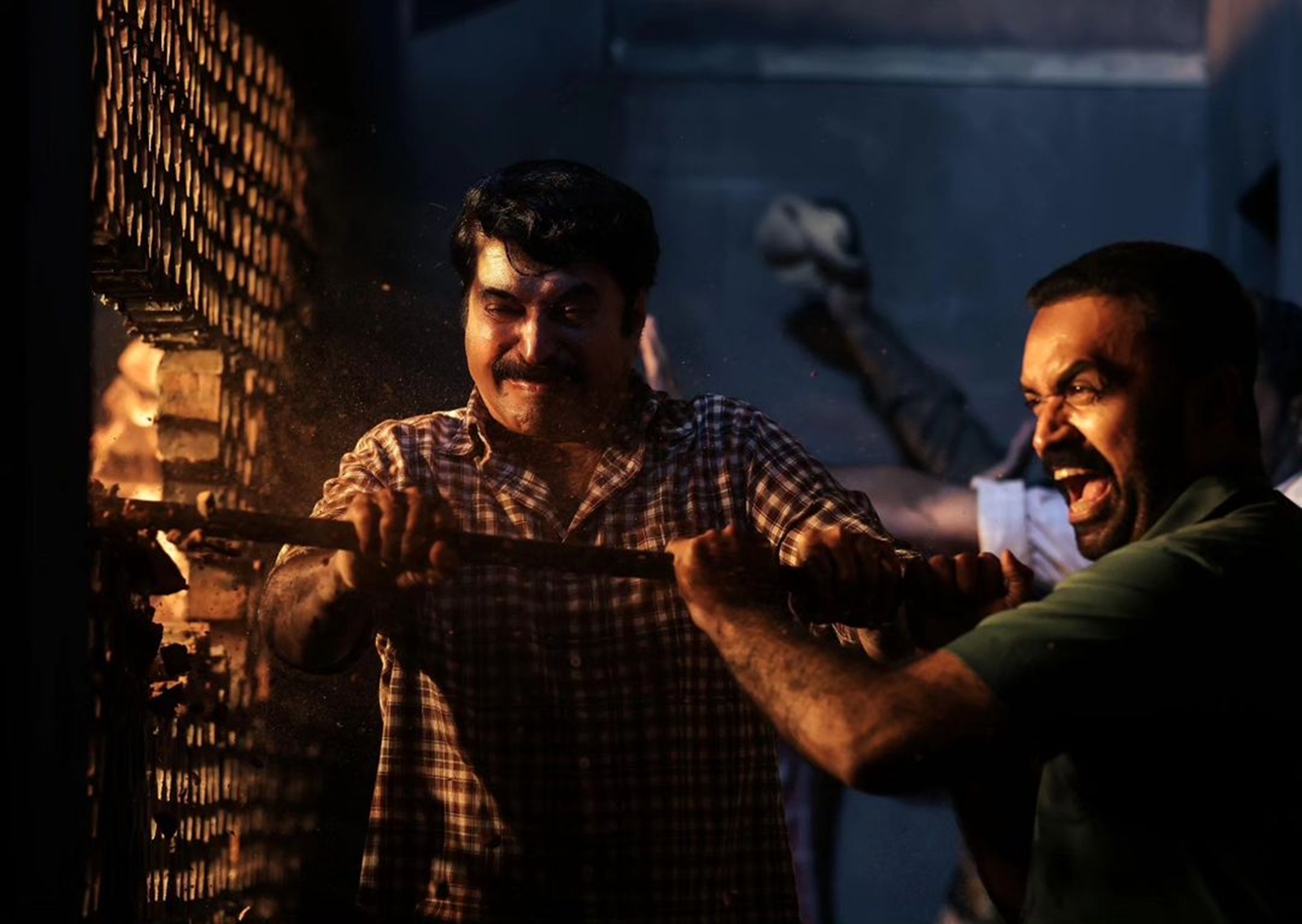 Actor-writer Rony David Raj with Mammootty during an intense action sequence in Kannur Squad. (Image: Mammootty Kampany/Instagram)
Actor-writer Rony David Raj with Mammootty during an intense action sequence in Kannur Squad. (Image: Mammootty Kampany/Instagram)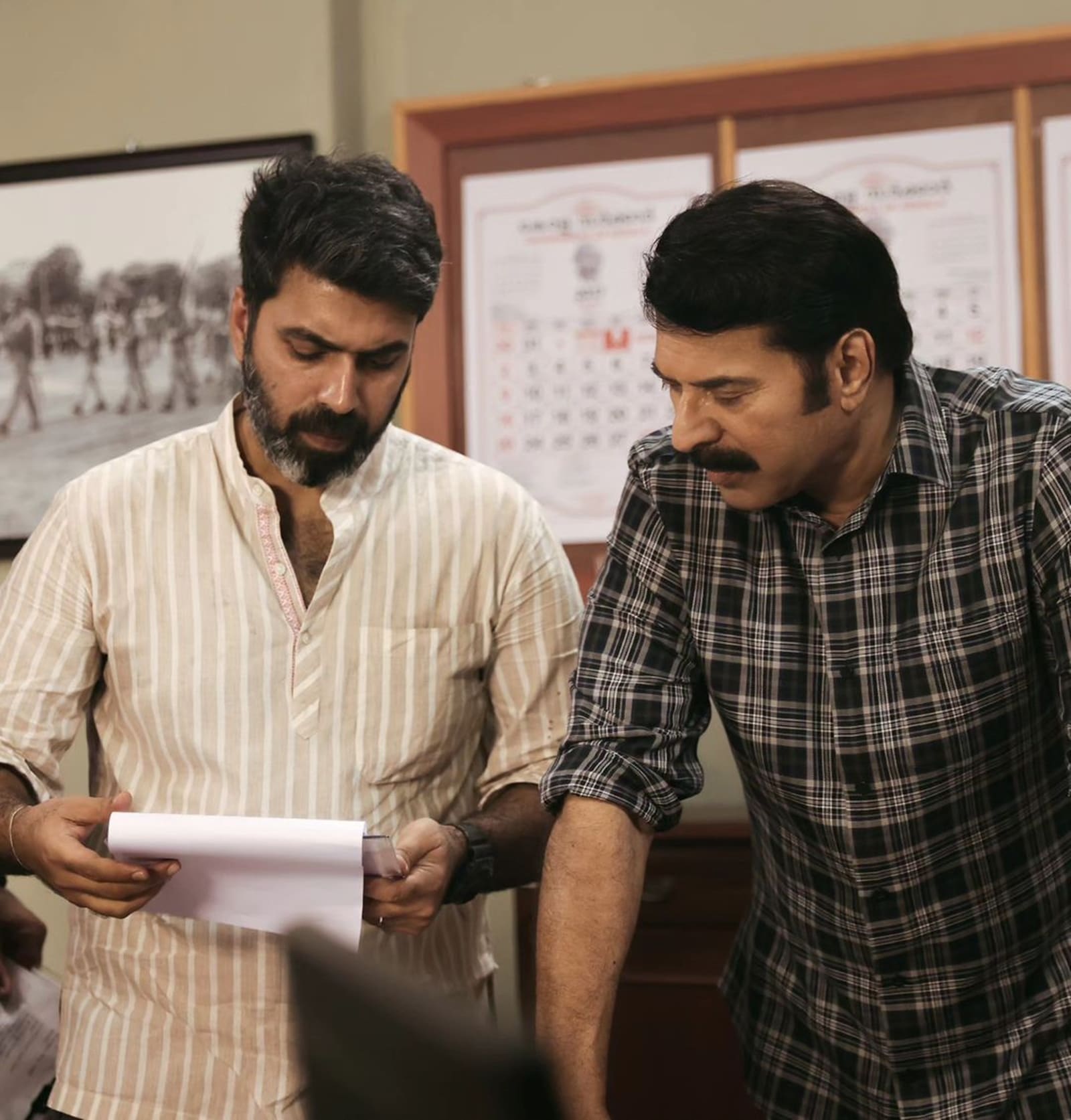 Cinematographer-director Roby Varghese Raj’s Mammootty-starrer Kannur Squad grossed a remarkable Rs 100+ crore globally before winding up its theatrical run. (Images: Mammootty Kampany/Instagram)
Cinematographer-director Roby Varghese Raj’s Mammootty-starrer Kannur Squad grossed a remarkable Rs 100+ crore globally before winding up its theatrical run. (Images: Mammootty Kampany/Instagram)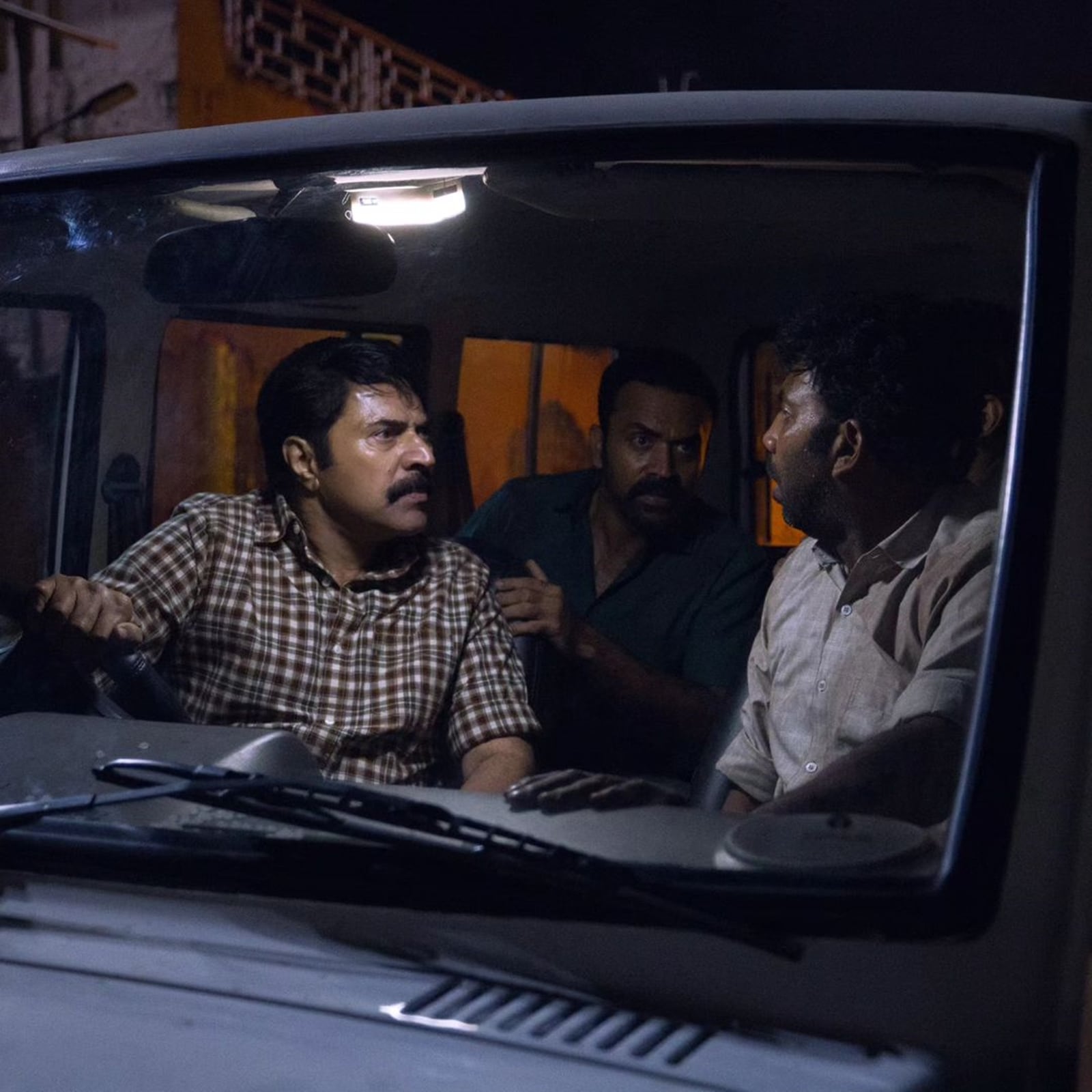 Actors Mammootty, Rony David Raj and Azees Nedumangad in Kannur Squad. (Image: Mammootty Kampany/Instagram)
Actors Mammootty, Rony David Raj and Azees Nedumangad in Kannur Squad. (Image: Mammootty Kampany/Instagram)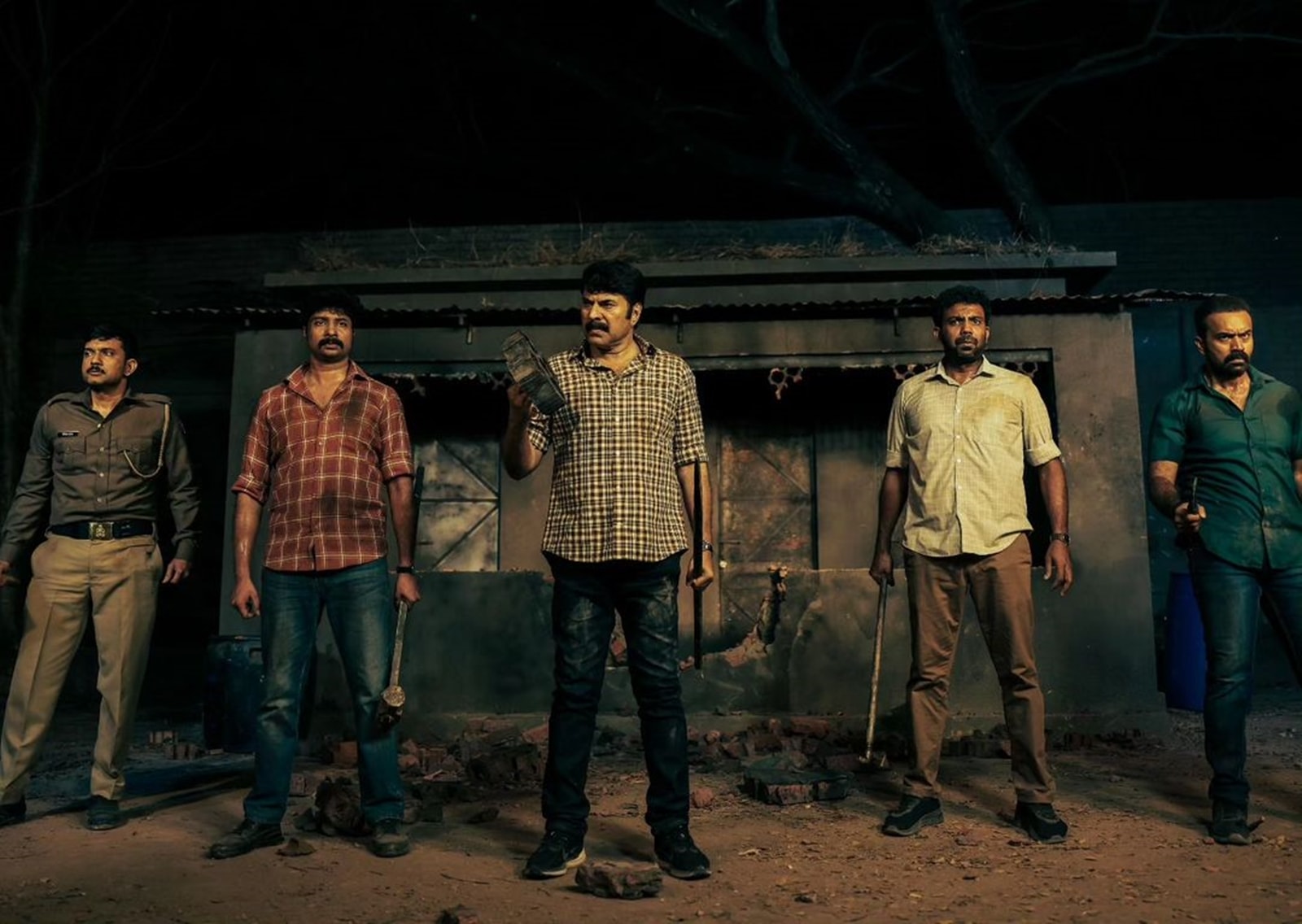 Roby Varghese Raj’s Kannur Squad is based on a real-life police unit bearing the same name, originally formed by former Kannur SP S Sreejith to expedite case resolutions. (Image: Mammootty Kampany/Instagram)
Roby Varghese Raj’s Kannur Squad is based on a real-life police unit bearing the same name, originally formed by former Kannur SP S Sreejith to expedite case resolutions. (Image: Mammootty Kampany/Instagram)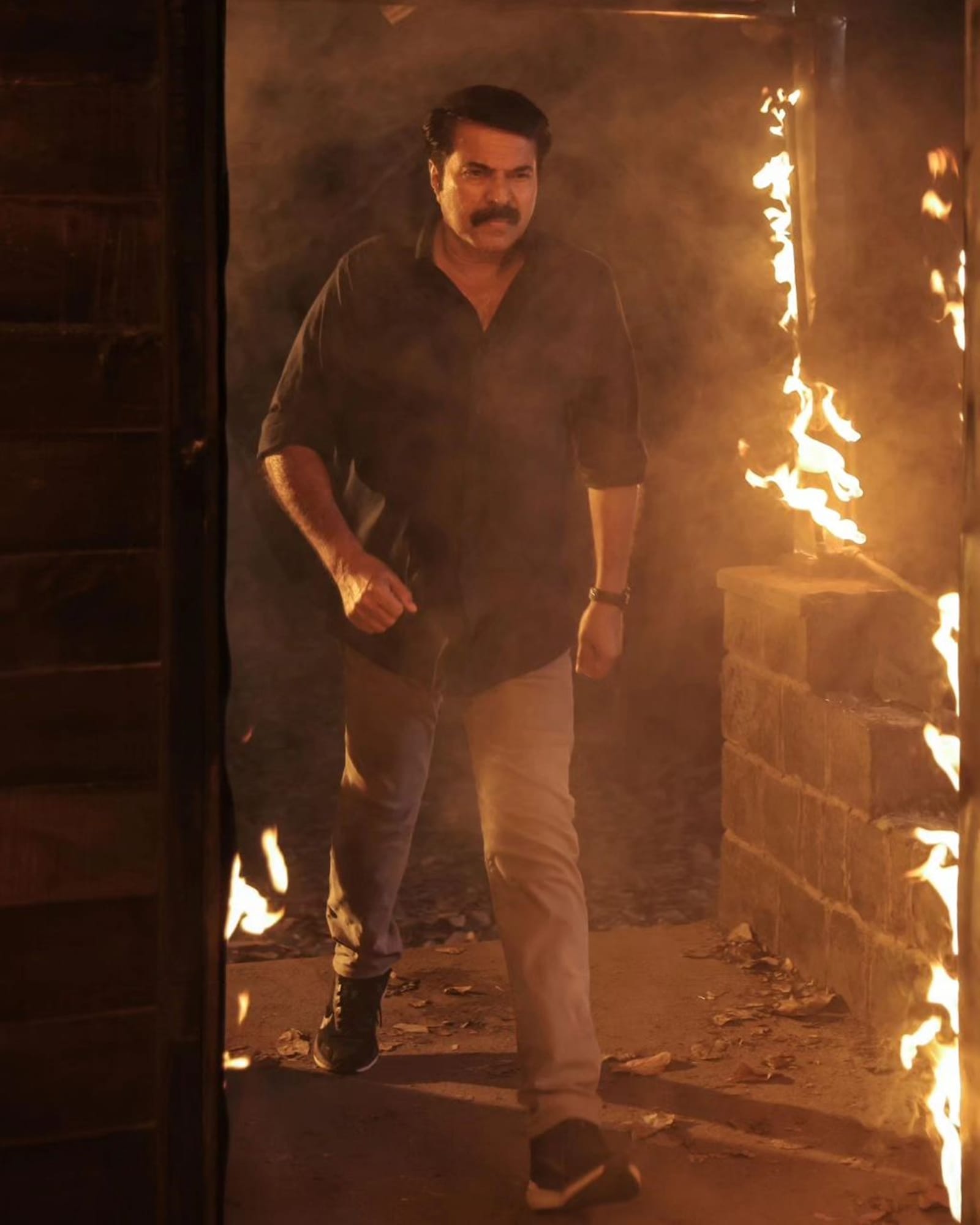 Mammootty plays the role of ASI George Martin, the head of Kannur Squad. (Image: Mammootty Kampany/Instagram)
Mammootty plays the role of ASI George Martin, the head of Kannur Squad. (Image: Mammootty Kampany/Instagram)
















